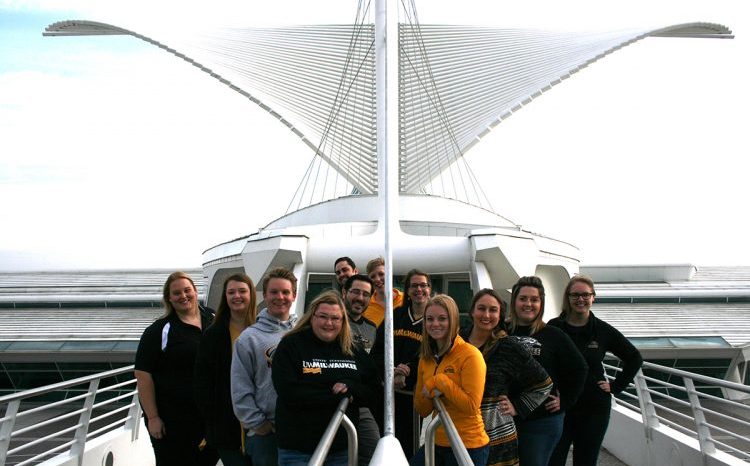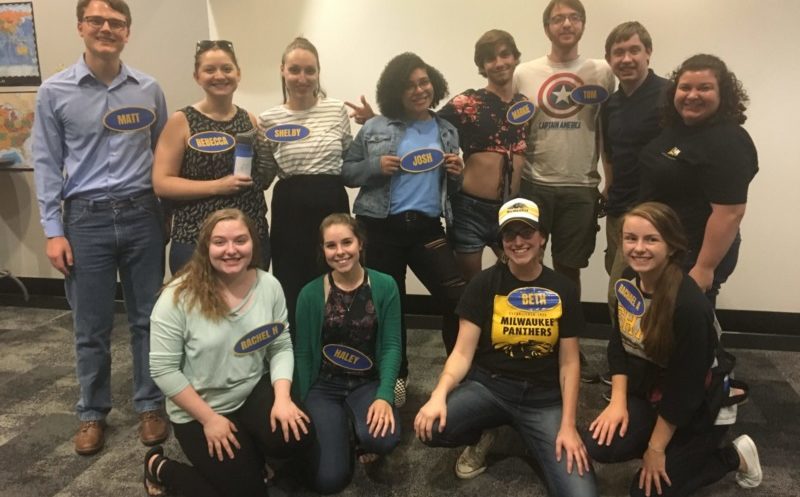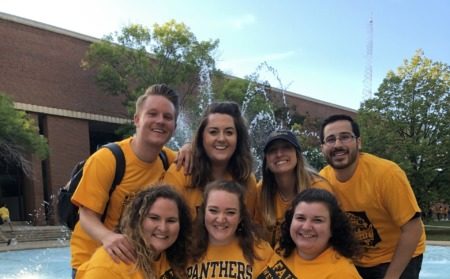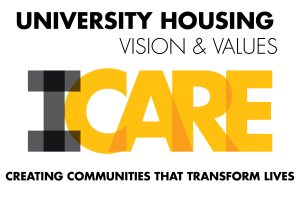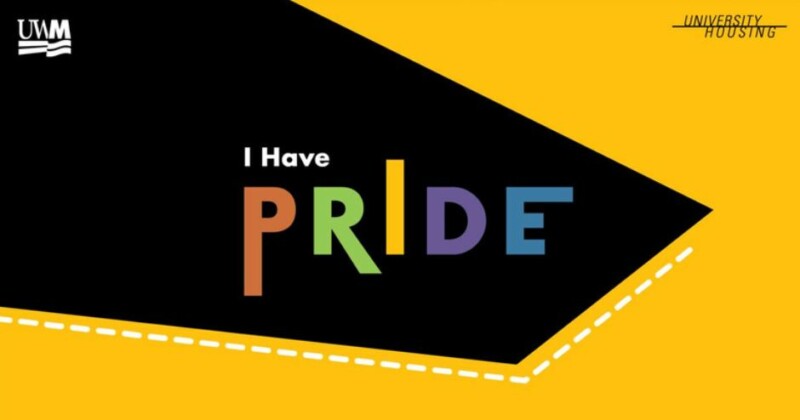Join Our Team!
University Housing is excited to be part of your search process. This page aims to provide you insight into our values, team dynamics, and vision for student success in our residence halls.
Residence Life Coordinator Benefits Overview
- Starting Salary: $44,460
- 2-Bedroom Partially-Furnished Apartment
- Covered Parking Garage Spot
- Wisconsin State Benefits
- Inclusive Live-In Partner Policy – 1 adult, dependents
- 2 Pets (Registered with the City of Milwaukee)
Residence Life Coordinator Apartment Tour Video
RLC Apartment Tour from UWM University Housing on Vimeo.
Residence Life Coordinator Role
We are a small team with big opportunities. In University Housing, we want you to find your fit by exploring different focus areas within Residence Life. Residence Life Coordinators (RLCs) will receive the same foundational experience that includes working in all suite-style facilities, adjudicating behavior, advising students, on-call duty rotation, and other administrative responsibilities. However, we believe in offering professionals a place to hone specific skills and interests by offering some specialized RLC roles that focus on a specialty or interest area. RLCs can maintain a traditional experience or explore different things over a few years.
RLC Positions include:
- North Tower RLCs: North Tower is our largest residence hall, requiring at least two RLCs to split supervision of the upper and lower sections of the tower. These RLCs receive a traditional tower experience while working more collaboratively with their North Tower RLC colleague.
- South & West Tower RLCs: South & West Towers are traditional towers comprised of our Living Learning Communities (LLCs). These two RLCs will work collaboratively with campus stakeholders and network with faculty and staff in Student and Academic Affairs.
- East Tower RLC: The East RLC works with upper-level students in a dedicated, upperclassman tower.
- RiverView RLC: RiverView Residence Hall is a stand-alone building located on our South Campus, across the bridge from Cambridge Commons and minutes away from Kenilworth Square Apartments. The RiverView RLC will work with first-year students in an environment filled with opportunities to build a strong South Campus community, new traditions, and neighborhood engagement.
- Cambridge RLCs: Cambridge Commons is a stand-alone building located on our South Campus, across the bridge from RiverView Residence Hall and minutes away from Kenilworth Square Apartments. Cambridge Commons requires two RLCs to split supervision of the building. The Cambridge RLCs will work with first-year students in an environment filled with opportunities to build a strong South Campus community, new traditions, and neighborhood engagement alongside their Cambridge colleague.
- South Campus RLC: The South Campus RLC will oversee the management of the South Campus service desks. The South Campus RLC also works collaboratively with their Cambridge and RiverView colleagues to build community and strengthen the South Campus experience curriculum.
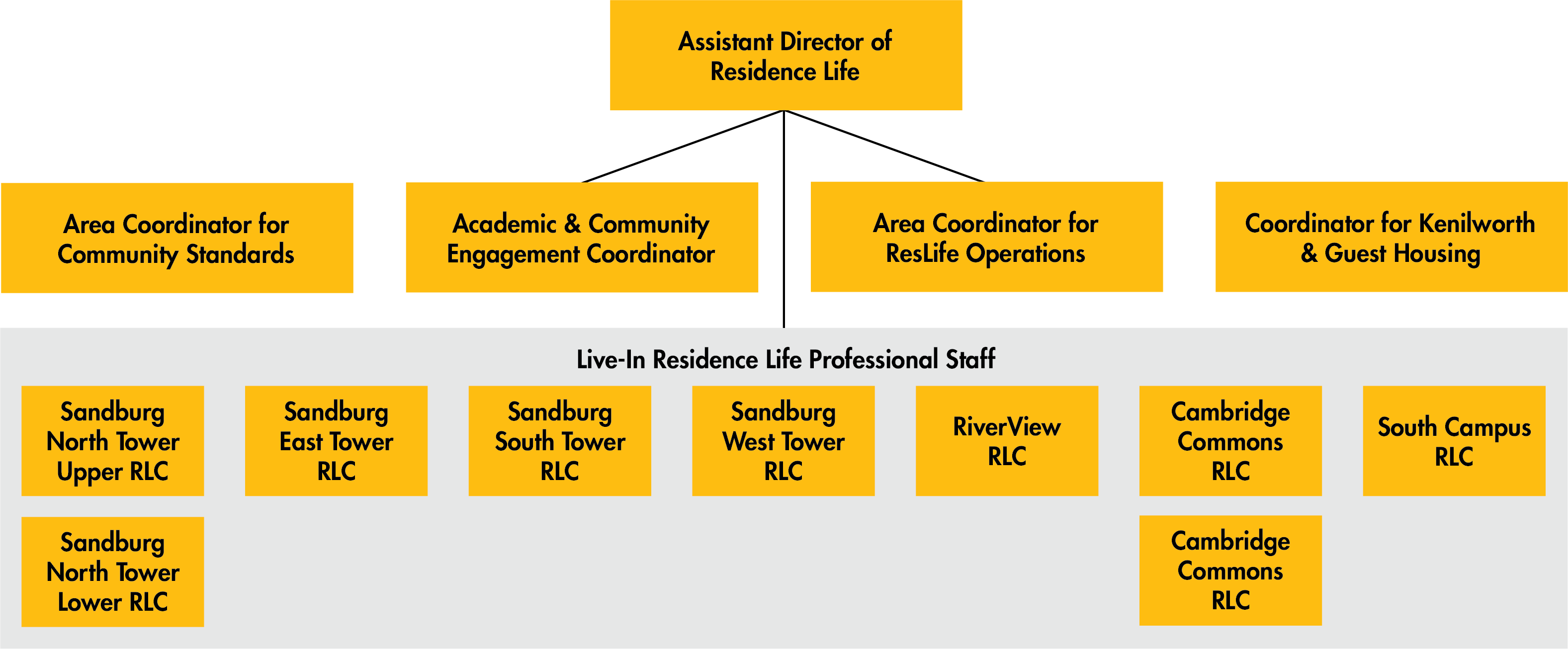
University Housing Values
- Inclusivity
- Community
- Adaptability
- Responsibility
- Excellence
For more information on the University Housing Mission, Vision, Values, and Strategic Planning Process, visit uwm.edu/housing/about-us/mission-statement.
P.R.I.D.E. Model for Student Engagement
Developed in collaboration with the Student Success Center and Center for Student Involvement, the PRIDE model guides first-year students by encouraging behaviors that will lead to a successful transition to college. PRIDE stands for:
- Prioritize Academic Success
- Reach Out
- Involve Yourself
- Develop a Plan
- Explore Milwaukee and Beyond
UWM Student Population – Quick Facts
- There are over 27,000 students.
- UWM is the most diverse school in the University of Wisconsin system. Approximately 82% of our campus population are Wisconsin residents – many from the Milwaukee area, and around 40% are first-generation.
- UWM is Research 1 AND Access Institution.
- UWM has 4.5 stars from Campus Pride as an LGBT-Friendly Campus, and we were the first UW school to have Inclusive Housing.
What are students like?
There isn’t just one type of student at UWM, which is something we really appreciate! We have students from a variety of different backgrounds and experiences. Many come to UWM to be surrounded by the city of Milwaukee while it feels like they live in a small college town. Students who come to UWM are often students looking for experiences, whether that’s in the halls, on campus, or in the community. They work hard, want to make connections, and enjoy their UWM experience.
What are student staff like?
Student staff at UWM are passionate, vibrant, and hard working. They care about the experiences of the students they serve, and will do anything to help anyone in need. They are incredibly dedicated to the UWM experience and want everyone to enjoy their time at UWM and in the residence halls. Student staff are dedicated, energetic, and enjoyable to be around. Supervising student staff is one of the best parts of being an RLC!
A $20 Student Activity Fee is collected by all students living in the residence halls each semester, which funds the programmatic efforts within residence life. This has allowed for creative, engaging, fun, and educational student-focused opportunities run by students, student staff, and professional staff, for students. We have had large-scale events like comedians, hypnotists, spoken-word artists, accessibility-advocate speakers, build-your-own stuffed animals, bubble ball soccer, and also the more traditional paint and sip nights, open mic and karaoke events, gaming events, and craft nights.
The UWM Student Housing Administrative Council (SHAC/RHA) and National Residence Hall Honorary (NRHH) are part of the GLACURH region and affiliated with NACURH. Advisors do have the opportunity to advise regional and national delegations, as well as RA conferences. UWM is proud of our recent history in increasing conference engagement and winning regional and national awards.
Find out about all our organizations at uwm.edu/housing/life-uwm/involvement
The University Housing Resident Behavior Process is a part of community development within the residence halls and apartments at UWM. Members of a community have both rights and responsibilities. Inherent to the success of the University Housing Resident Behavior Process is an awareness and acknowledgment of their responsibility for their behavior and how it affects the community in which they live. Primary emphasis is placed on the educational and developmental progress of the resident and is part of the educational mission of the University.
RLCs will have a progressive adjudication experience that starts with low-level violations and progresses to cases with potential contract status implications. Behavior cases can range from mask violations or simple alochol or noise violations to higher-level issues like drugs or disorderly conduct. RLCs who have a passion for the behavior process and student conduct can gain experiences in their position that leave them prepared for further career opportunities in that interest area.
For more information on the University Housing Behavior Process rules and regulations, please see the Resident Handbook. The handbook and policies are applicable to all University Housing facilities, and are reviewed by professional staff and the Student Housing Administrative Council on a yearly basis.
Committee examples include:
- All RLCs serve on either the Resident Assistant Recruitment or Student Staff Training Committee
- Divisional Committees: Assessment, Campus Life, Celebration and Community, Communications, Engagement, Equity and Justice, Staff Development, Student Health and Wellbeing, Student Learning and Development, Technology Facilities and Operations
- University Housing POINT (Planning, Organizing, Implementing Needs of the Team) Committees: Move-In/Out, Professional Development, Human Resources Advisory, Assessment, Panther Pride
- Departmental and Campus-wide Search and Screen Committees
Past professional conferences (based on budget) have included:
- NACURH, GLACURH, etc.
- NASPA
- UMR-ACUHO
- Assessment Institute
- RELI (Regional Entry Level Institute)
- Topic-Specific Online Trainings and Conferences
In 2019, our department moved away from a traditional committee approach to social justice. We believe that every staff member should have ownership in social justice and diversity practices in all areas of our work, not a small group of staff on a committee. Staff members have opportunities to develop their understanding of social justice through professional development that includes seminars, training sessions, and departmental book clubs or educational engagements. We believe this philosophical approach allows staff members to speak to their growth in connecting social justice practices with their day-to-day work.
Human Resources:
- Employee Benefits
- Employee Assistance Program (EAP): The EAP provides in-person and virtual counseling sessions, referrals to community resources, supervisory consultations, crisis support, and work-life referrals.
- Wellness Programs: Vaccination clinics, Well Wisconsin program, and financial planning.
Division of Diversity, Equity, and Inclusion:
Affinity Groups: Affinity groups bring together employees with similar backgrounds or interests. They are not part of the formal governance structure. Instead, they are formed by employees based on a shared identity or common goal. They help to foster a greater sense of community and mutual support as well as represent the needs and concerns of group members. Infinity groups include African Diaspora Council, Asian Faculty and Staff Association, and Latino Faculty and Staff Association.
Academic Staff Senate:
The Senate of the Academic Staff is the official governance body for the academic staff and represents UWM academic staff interests to campus administration, UW System administration, and the Board of Regents. It is composed of 35 members: nine are Academic Staff Committee members who are elected separately; 20 are representatives elected by academic staff in a particular school, college, or division; and six are at-large members.
Explore Milwaukee:
Milwaukee is a thriving metropolitan city with a dedication to cultural and music festivals, historic sites, public art, champion sports teams, beaches, park trails and green spaces, and so much more. The UWM campus is minutes away from these Milwaukee hallmarks.
Milwaukee (City and County) Attractions:
- UWM Bucket List
- VISIT Milwaukee
- NEWaukee
- Dear MKE
- Milwaukee County Park System
- Milwaukee County Transit System
Wisconsin Attractions:
When asked to highlight their favorite aspects of Milwaukee, RLCs said they loved the Milwaukee summers, Brewers and Bucks games, being within walking distance of Lake Michigan, and the proximity to Chicago.
